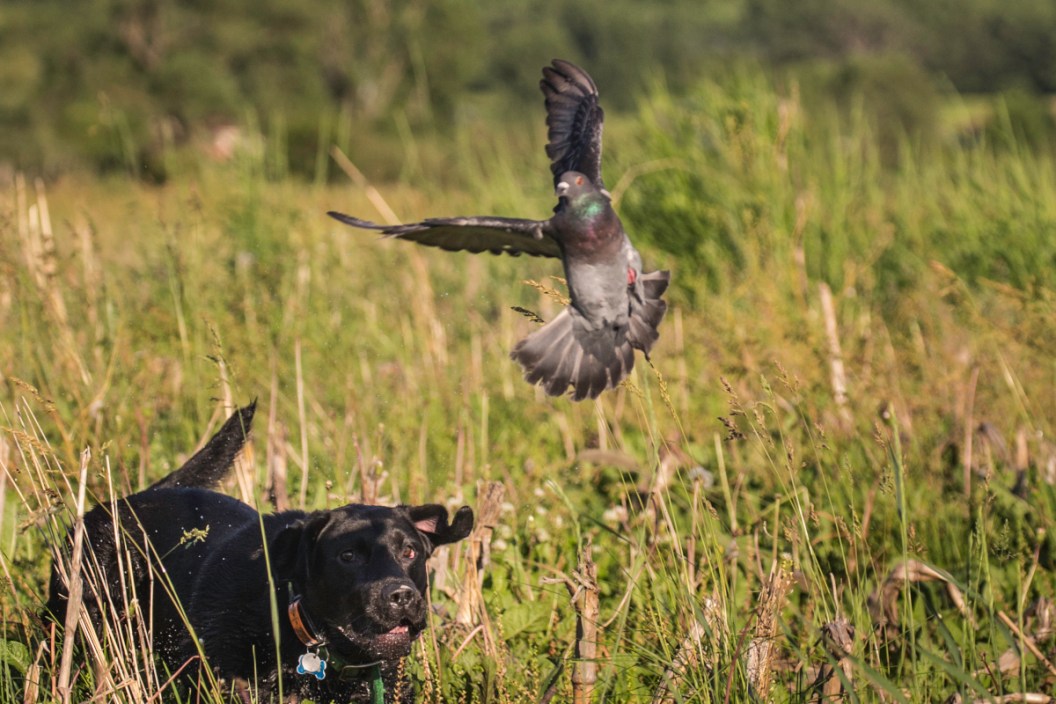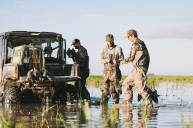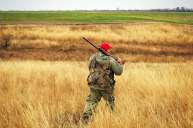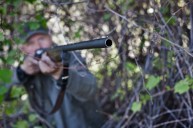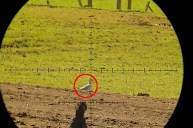Pigeon hunting often gives additional wingshooting opportunities in the offseason.
In the world of bird hunting, most attention is usually given to the popular game birds, mourning doves, turkeys, pheasants, quail, grouse, ducks, etc. As a result, some animals like pigeons get completely overlooked by most hunters. Which is a shame because they offer a simple and fun hunting experience that can provide some quality table fare. Hunting them can also help shooters keep their skills sharp for duck season or other forms of bird hunting.
While pigeons may traditionally be considered a city bird, there are plenty to be found in the country if you know where to look, and hunting seasons are often generous.
The great thing about hunting pigeons is how affordable and simple it is to pursue them. You need relatively little gear, and what you do need is usually cheap. Access to dove shooting is often easy too, especially when they're being a pest on a farmer's field. Today we'll go over some of the basics of dove hunting and give you some key tips to help you get started.
Do pigeons have a hunting season?
This is going to vary greatly depending on where you plan to pursue them. For instance, states like Texas and Michigan allow the shooting of feral pigeons all year-round. Some states have more specific seasons. California for instance, has two short, nine-day seasons for Pacific Coast Band-tailed pigeons. Mostly because this species is closely related to the extinct passenger pigeon and biologists want to make sure this pigeon population does not follow the same fate.
In areas that do have specific pigeon seasons and bag limits, you will usually find the dates closely follow those of dove hunting seasons. It makes sense because many pigeons frequent the same hunting grounds and respond to dove decoys and setups in the same way. It's not uncommon for hunters to bag a pigeon thinking it's a dove.
Most states have either some sort of season or they are completely unregulated. We recommend you check your state's regulations before you head out after pigeons. Also make sure you can tell the difference between rarer birds like the band-tailed pigeon we mentioned earlier and more common, invasive birds like rock pigeons before you head out. Also keep in mind that while pigeons are often unregulated in many states, you are usually still required to have a hunting license and follow other regulations to shoot them.
What gear do I need for pigeon hunting?
Perhaps the best part of pigeon shooting is that the gear you need is relatively simple. Most hunting trips require nothing more than a shotgun and some decoys. While you can buy specialty pigeon decoys, most hunters just use dove decoys. Pigeons aren't exactly known for being smart, and the two birds look similar enough that they should be effective enough. Most seasoned pigeon hunters do agree that a spinning wing decoy is a must for your setup. The little bit of extra motion helps seal the deal. Most hunters put out just eight to twelve decoys.
As for firearms, most guns you might use for birds are effective here. Shotguns in 12, 20, or .410 bore are perfect. Pump action, semi-auto, over-and-under, it does not really matter. You just want something built for wingshooting. For shot size, consider sizes 7 or 8 for most scenarios. If you are on public land, make sure you are using a non-toxic shot.
Other than that, you do not need much else. Full camo is recommended to hide from the prying eyes of a pigeon. It does not have to be a super-fancy camo though. Just enough to help you blend into the background. Since most pigeon hunting happens in the offseason, a simple light shirt and pants are usually enough to do the trick. As you can see, most of this gear is stuff hunters already own, or can pick up on the cheap. It's yet another reason why this is an ideal hunt for beginners.
While shotguns are the usual weapon of choice, there is also a dedicated segment of hunters out there, especially in the U.K., who like to use high powered air rifles to pick pigeons off from a distance. It's a slightly more cost-effective way to hunt them once you've spent money on a good air rifle.
Tips for finding and bagging pigeons.
The hardest part about hunting pigeons may simply be in finding them. They may be easy to locate in the cities, but in the country, it can be a little more challenging. In most instances, it's best to concentrate your efforts on agriculture. Look for cornfields, sunflowers, and wheat. Some hunters argue the cut fields are more effective than the unharvested ones. Probably just because it makes foraging easier for the birds. Look for areas where there are also cattle around because pigeons are often attracted to the droppings.
Gain elevators, silos, and other areas where pigeons can commonly be found. The more food nearby, the better. Remember how these things are constantly stuffing themselves and being pests in the city. If you see a ton of pigeons roosting around a farm, it's worth a knock on the door. Odds are the farmer is frustrated with these winged pests and will be more than happy to let you shoot as many as you'd like. It's a win-win situation. You get to hunt, and the farmer does not have to waste valuable time dealing with the issue themselves. In many cases, the best way to find pigeons is simply to drive around area farms looking for them.
It can be a little more difficult on public land to find the birds. However, keep in mind that any high-volume dove area is likely to have pigeons around too. In the right season you can enjoy hunting both.
As we already mentioned, make sure you are wearing enough camo to hide from their prying eyes. While they may be fearless in the cities, pigeons have actual predators in rural areas and are not quite as trusting. Fortunately, the same gear you use for doves or duck hunting should be more than adequate to fool them. Most hunters like to set up on a field edge just under the trees or even in a blind. Break up your outline and you should fool the birds.
For decoy setups, it does not need to be fancy. A simple "U" or "V" shape on the ground is usually enough to do the trick. Some hunters have found success in leaving already shot pigeons and doves on the ground in their setup for a little extra realism. Most pigeon hunters do like to face the decoys into the wind with the idea of creating a landing zone that will draw the birds in for a close shot. Most hunters keep things in the 20 to 35-yard range. Beyond that, you are likely just wasting ammo. Remember how small these birds are.
When you do bag some pigeons, we recommend making bacon-wrapped poppers out of the breasts like many hunters do with doves. Some people even prefer the pigeons to doves. It's a great way to enjoy this tasty treat well after dove season has ended in many areas.
Pigeon hunting may not be as popular as other forms of wingshooting, but for those in the know, it's a great way to practice your hunting skills in the offseason. And it's enough to scratch that hunting itch during the long wait between seasons in the summer months. Give it a try this year, you may just find a new favorite hunting activity!
Products featured on Wide Open Spaces are independently selected by our editors. However, when you buy something through our links, we may earn a commission.
For more outdoor content from Travis Smola, be sure to follow him on Twitter and check out his Geocaching and Outdoors with Travis YouTube channels.
NEXT: DOVE HUNTING 101: HOW TO TAKE ADVANTAGE OF THIS FUN, EARLY SEASON OPPORTUNITY
WATCH
